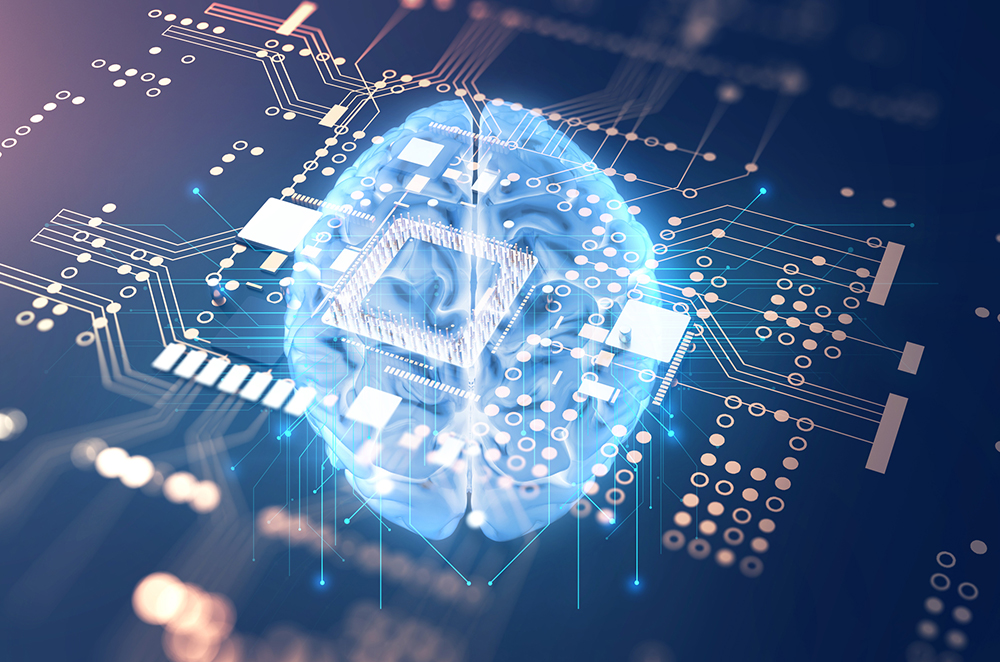Artificial intelligence (AI) refers to systems or models that can perform tasks simulating human intellect and improving performance iteratively as they collect information and process it. It is capable of speech interpretation, decision-making, visual perception, etc.
AI is multifaceted and has found its applications in diverse industries. An example is AI-enabled robotic systems that came to replace humans in multiple stages of manufacturing, agriculture, astronautics, health care, military, etc. AI applications do more than just contribute to a more error-free operation. On top of everything, they enable effective people management, thus becoming a valuable asset for companies. Let’s further explore how.
Role of AI in People Management
For many companies, data goes far beyond being a competitive advantage, and it expands to more of a competitive need to be able to survive the changing business environment. To a large part, company decisions involving finances, marketing, customer service, and sales are driven by computer and data-driven (predictive) analysis. However, these days, data analytics may not be put into action when it comes to people management and making judgments about how we can attract, grow, retain, and motivate employees. This is where AI steps in.
Machine learning and AI can help find patterns and make connections that are both complex and time-demanding for humans to overcome. Professionals may become more strategic and proactive if they have access to AI tools. For example, AI can be utilized throughout the hiring process to find matches, benefiting both employees and employers easily.
AI Changing the Future of People Management
The way forward promises further advances. There are several ways AI will affect the future of people management:
24/7 Availability
Chatbots are great examples of how AI fosters effective real-time support and communication with a client. Augmenting your business with this feature can also contribute to a more user-friendly environment, attracting more leads. We live in a time when an immediate response can determine a buyer’s decision, and because of this, AI is irreplaceable.
Automation
HR practitioners can benefit a lot from AI platforms, too, as they automate transitions and repetitive processes, freeing up their time to focus on high-priority tasks. By saving time and replacing the mundane with streamlined solutions, companies can capitalize on other operations, bringing more value to customers.
Personalized Communications
User expectations keep increasing at an alarming rate. Again, referring back to HR, potential job candidates are looking forward to real-time connectivity to resources, up-to-date notifications, and much improved interactions, which may include access and utilization of their personal information to better target applicants based on metrics, such as location, gender, professional experience, and interests.
Real-Time Data
When it comes to the quick discovery of developing trends and challenges, there isn’t much that can be compared with the power of analytics. Using AI, one can quickly determine whether candidates or former employees were asking the same questions throughout onboarding or raising concerns that sounded similar. One can then act promptly to focus on opportunities and address issues before they become prevalent. A particular example is employing natural language processing (NLP) methods to determine employee sentiments on internal discussion boards. This is handled by computer vision, which, in turn, requires vast sets of training data, validation, testing, and then deployment.
New Approaches to Old Challenges
Moving forward, AI can be used to improve recruiting, employer advertising, and branding further. With a better understanding of the target audience, it may be possible to convey company culture and values in more natural and engaging forms, all with the help of AI.
Key Points
Machine learning and AI will not cease impacting the future, helping businesses grow and expand their operations. Even today, AI-based HR apps improve employee efficiency. It can analyze, predict, diagnose, and become a more capable resource while concentrating on the needs and wants, as well as the performance, of employees.
Focusing on people instead of data and paperwork is essential in business because it leads to better cooperation and effective teamwork; motivated individuals can get involved in achieving incredible things when they feel respected and appreciated!
Still, issues like a lack of privacy, a talent gap, maintenance, and integration are ongoing. However, by taking caution while adopting AI services, you can avoid or minimize these issues afterward. An essential part of people management through AI systems is discovering and using reliable learning databases and the proper implementation approaches. Companies and their HR departments are encouraged to customize their strategies to deploy AI in the workplace to match the evolving expectations of their workforce worldwide.
Melanie Leah Johnson is a Guest Contributor for HR Daily Advisor.

